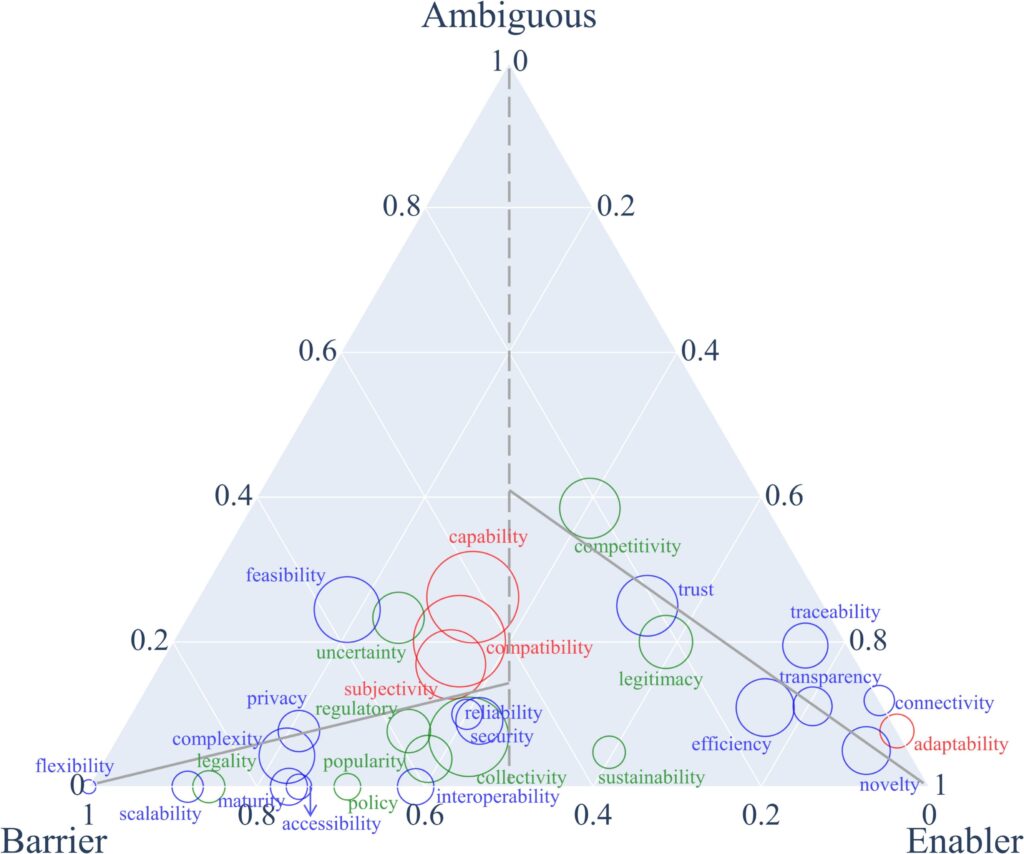|
Getting your Trinity Audio player ready...
|
Blockchain adoption has gradually increased over the years. However, at the enterprise level, this adoption has been sluggish, and according to a new report, it’s due to the technology over-promising and under-delivering.
In their paper, four researchers from the University of Surrey and Cardiff University delved into enterprise blockchain adoption and some of the main hurdles preventing the technology’s explosion in organizations. The four identified 880 factors and 29 themes of blockchain adoption at the institutional level.
Citing previous surveys, they found that only 2% of digital leaders worldwide have adopted blockchain on a large scale, while 8% reported small-scale adoption. Cloud computing, big data, and artificial intelligence (AI), in contrast, reported 92%, 62%, and 36% large-scale adoption globally.
“While blockchain has been touted as a revolutionary technology, our research suggests that its adoption is hampered by over-promised benefits, under-delivered business value, and the complex interdependence between adoption drivers and barriers,” commented Mahdi Tavalaei, one of the authors.
The researchers organized the factors into 29 general themes, which included accessibility, capability, efficiency, flexibility, maturity, policy, privacy, and scalability.
All these themes have impacted adoption to some level, and the study ranked them as either a barrier or an enabler.

The researchers found that organizations are well aware of the benefits of blockchain adoption. However, the barriers often overshadow the benefits, which has resulted in low adoption at an enterprise level. The barriers also tend to be more conclusive, while the benefits are either long-term or dependent on other factors.
Take scalability, for instance, which ranks as the second-most impactful barrier, according to the study. Most blockchain networks can’t scale to meet enterprise needs; the few that have attempted have either sacrificed security and uptime like Solana or have high fees like Ethereum. Only BSV blockchain has managed to scale to an enterprise level while keeping fees low and the network secure.
However, this scale is sometimes overshadowed by other environmental and organizational factors, such as regulatory uncertainty. The study says this is the mismatch that has limited blockchain adoption by organizations.
“Blockchain technology holds great promise, but the narrative needs a reality check. Our research shows that the interplay between drivers and barriers of blockchain adoption across technological, organizational, and environmental dimensions highlights the complex and often conflicting dynamics organizations must navigate,” Tavalaei added.
Still, blockchain plays a more prominent role in some of the world’s biggest organizations. In recent years, tokenization has emerged as one of the vital benefits of the technology, leading to an acceleration in adoption. Multiple reports say tokenization will unlock trillions of dollars by the decade’s end.
Watch: Adopting enterprise blockchain brings benefits

 03-04-2026
03-04-2026 




